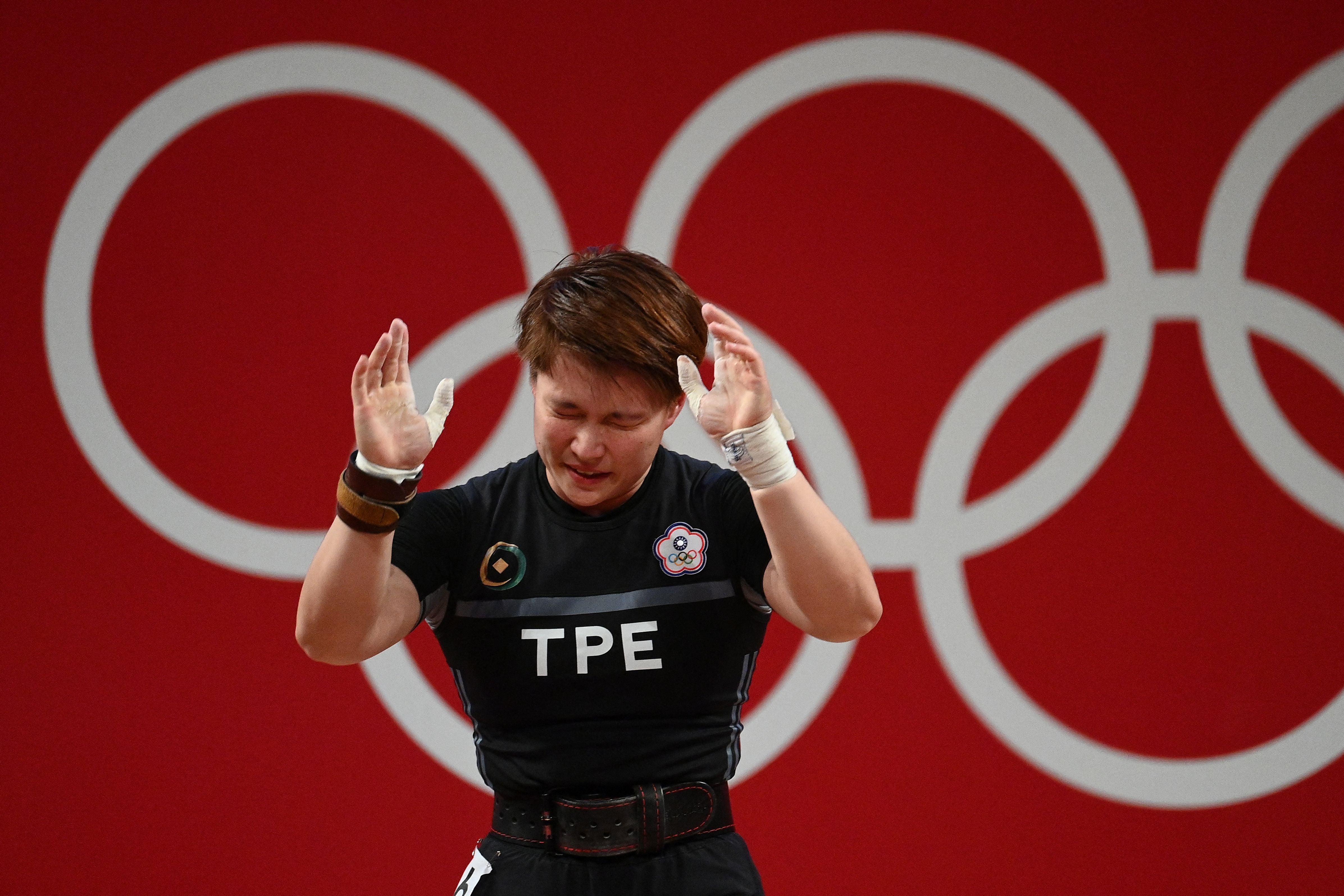Tokyo 2020: What country is TPE in the Olympics?
What is Chinese Taipei? The answer goes all the way back to 1949.

Your support helps us to tell the story
From reproductive rights to climate change to Big Tech, The Independent is on the ground when the story is developing. Whether it's investigating the financials of Elon Musk's pro-Trump PAC or producing our latest documentary, 'The A Word', which shines a light on the American women fighting for reproductive rights, we know how important it is to parse out the facts from the messaging.
At such a critical moment in US history, we need reporters on the ground. Your donation allows us to keep sending journalists to speak to both sides of the story.
The Independent is trusted by Americans across the entire political spectrum. And unlike many other quality news outlets, we choose not to lock Americans out of our reporting and analysis with paywalls. We believe quality journalism should be available to everyone, paid for by those who can afford it.
Your support makes all the difference.On Tuesday, the gold medal-winning weightlifter Kuo Hsing-Chin had more than just 140 kg dangling above her head: she had the better part of a century’s worth of political wrangling between China, Taiwan, and the rest of the world.
Her gold medal would not formally go to the country most know as Taiwan—a democracy of 23 million people with distinct borders, currency, and government—but rather to Chinese Taipei, abbreviated TPE, the Olympic name for the contested island off mainland China.
The reason for the name games goes all the way back to the Chinese civil war, which ended in 1949. Following the conflict, the defeated Nationalists and their government, known as the Republican of China, fled to the island of Taiwan, while Mao Zedong’s victorious communists established the People’s Republic of China on the mainland. Though Beijing has never controlled the island, it insists Taiwan is part of the “one China.” (The US has maintained the same position since 1979).
Since then, the island has gone by a number of different names and arrangements in Olympic competition. Starting from its debut in 1932, the nation was called the Republican of China. In 1952, both Taiwan and China were invited to the Olympics, with both nations claiming to represent China, before Taiwan backed out.
During the next round of competition in 1956, Taiwan joined the Olympics as “Formosa-China,” using the name Portuguese sailors gave the island during the 1500s, prompting Beijing to boycott the games and later the quit the IOC entirely.
Then, Taiwan competed as Taiwan at the request of the IOC for the next three Olympics, before competing as the Republic of China once again in 1972
In 1975, the People’s Republic of China sought to join Olympic competition and asked that the Republic of China be decertified as an independent entity, with both countries eventually boycotting the games because a resolution couldn’t be reached.
In 1979, a solution of sorts emerged. The International Olympic Committee passed the Nagoya Resolution, a policy allowing the island to compete under its ambiguous current name Chinese Taipei, without its national flag or anthem. In 2018, Taiwanese voters shot down a referendum on changing the name of its team back to Taiwan once again.
The Olympics, despite their formally politically neutral stance, are no stranger to territorial controversies. There’s a team representing refugees, as well as one for the de facto US colony of Puerto Rico, and another for semi-occupied Palestine, a legally constituted nation in the eyes of much of the world that lacks formal recognition from countries including the US.
At this year’s games, Russia’s formal national olympic committee isn’t competing, after being handed a ban over a doping scheme, but Russian athletes are still present, competing without formal symbols like the Russian flag as a team called the Russian Olympic Committee.
As The Independent reported earlier this year, there’s also a growing number of Hawaiians pushing for recognition as their own team in Olympic competition, as a nod to the illegal US-backed coup that helped overthrow the island’s monarchy, an effort that’s taken on extra salience as surfing, which was invented in the islands, makes its Olympic debut in Tokyo.
Join our commenting forum
Join thought-provoking conversations, follow other Independent readers and see their replies
Comments